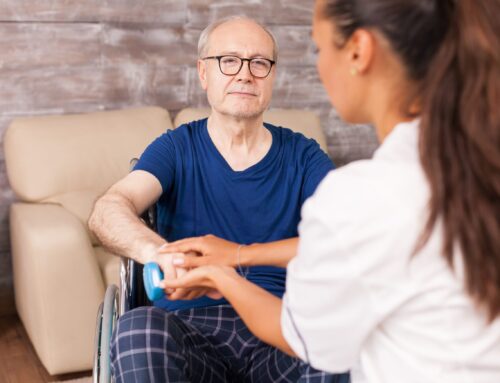Introduction Technology is transforming elderly home care, introducing tools that enhance safety, health monitoring, and social interaction. These advancements not only improve the quality of life for seniors but also provide peace of mind for caregivers. This post explores the latest technological innovations in elderly care, their benefits, and practical tips for integrating these tools into daily routines.
Wearable Health Monitors Wearable devices, such as smartwatches and fitness trackers, have become invaluable in elderly care. They monitor vital signs like heart rate, blood pressure, and oxygen levels, alerting caregivers to any irregularities. These devices can also track physical activity, encouraging seniors to stay active, which is crucial for maintaining mobility and overall health.
Medication Management Tools Adherence to medication schedules is essential for seniors managing chronic conditions. Medication management tools, such as automated pill dispensers and reminder apps, ensure that seniors take their medications correctly and on time. These tools reduce the risk of missed doses and incorrect medication intake, which can lead to serious health complications.
Telehealth Services Telehealth has become a cornerstone of elderly care, especially in the wake of the COVID-19 pandemic. It allows seniors to consult with healthcare professionals without leaving their homes. Telehealth services can include video consultations, remote monitoring of health conditions, and virtual follow-ups, making healthcare more accessible and convenient for seniors.
Smart Home Devices Smart home devices, such as voice-activated assistants (e.g., Amazon Echo, Google Home), can assist seniors in their daily routines. These devices can set reminders for medications, appointments, and activities. They can also control home appliances, lights, and thermostats, enhancing safety and convenience for seniors with mobility issues.
Safety and Security Technologies Ensuring the safety of elderly individuals at home is paramount. Technologies like fall detection systems, smart doorbells, and home security cameras help monitor and protect seniors. Fall detection systems can automatically alert caregivers or emergency services in the event of a fall, providing quick assistance when needed.
Social Interaction Platforms Social isolation can significantly impact the mental health of seniors. Technology offers solutions to keep seniors connected with their loved ones and communities. Video calling apps, social media platforms, and online community groups provide opportunities for social engagement, helping to reduce feelings of loneliness and isolation.
Robotics and AI in Elderly Care Robotics and artificial intelligence (AI) are making strides in elderly care. Companion robots can provide emotional support and companionship, while AI-powered assistants can help with tasks like scheduling, reminders, and even detecting changes in health conditions. These technologies offer additional support to both seniors and caregivers.
Conclusion The integration of technology into elderly home care is transforming the way we support our aging population. These innovations provide practical solutions to enhance safety, health monitoring, and social interaction, improving the overall quality of life for seniors. By embracing these technological advancements, caregivers can offer better care and support to their elderly loved ones.







Leave A Comment